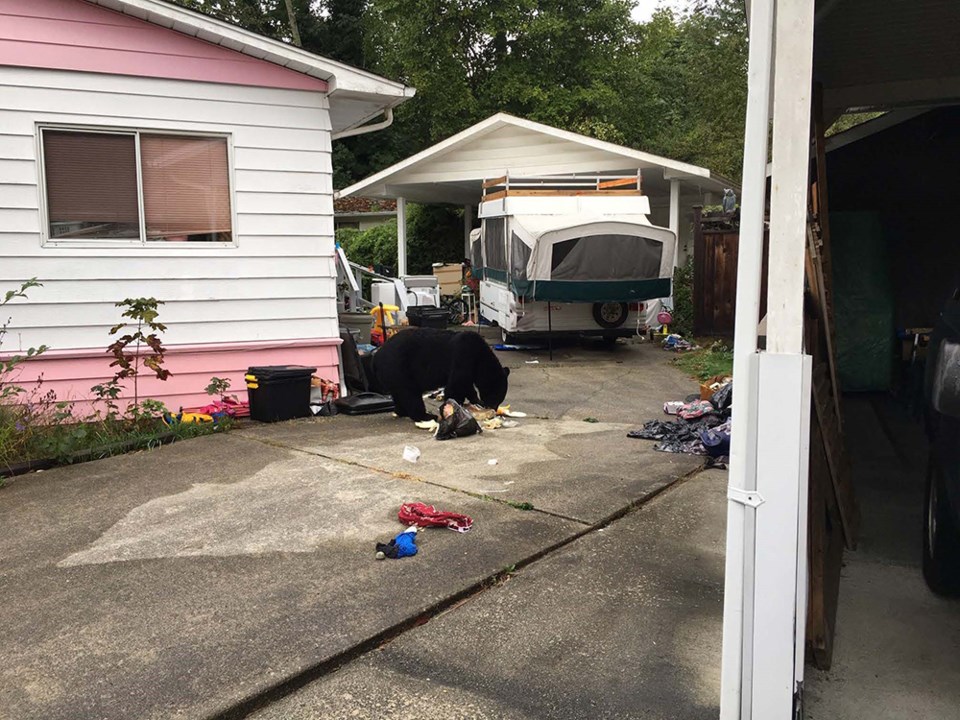Spring is right around the corner and the conservation officer service in the qathet region is hearing about some of the local bears waking up and exploring neighbourhoods.
Conservation officer Leyland Klassen stated in a media release that qathet is bear country and the conservation officer service is reminding everyone that the most effective and natural way to prevent conflicts with bears in urban areas is to limit access to attractants, such as garbage, bird seed, compost and fruit.
“To effectively prevent and manage bear/human conflicts, it is critical that everyone in the community prevent access to non-natural food sources,” stated Klassen. “If even a single container of garbage is left unsecured, it will draw bears to our communities and create public safety issues for all residents.”
Klassen stated that bears use their incredible sense of smell to zero in on food sources from many kilometers away. Once a bear has obtained foods such as garbage, it will become single-minded and become more and more determined in its attempts to access the food source, sometimes going so far as to break into homes, he stated.
“Remember that in BC it is an offence to feed or leave attractants available to dangerous wildlife,” stated Klassen. “Bears should never obtain human food, pet/livestock feeds, or garbage. Bears that receive these food rewards may become aggressive towards humans or cause property damage. To protect people, these bears may have to be destroyed.”
Klassen stated that under the Wildlife Act, conservation officers may issue violation tickets or dangerous wildlife protection orders (DWPO) if food attractants, such as garbage, pose a significant safety risk by drawing dangerous wildlife to public areas. DWPOs direct the person in charge of a premise to move or remove food attractants within a reasonable time period. Failing to abide by the terms of a DWPO may result in enforcement action.
Bears that become highly food-conditioned and habituated to humans are often destroyed because of concerns for human safety, stated Klassen.
“Relocation seldom works with bears,” stated Klassen. “Individuals often return to their original home territory or become problem animals in other communities. In addition, translocated wildlife often fail to adapt to their new habitat and, as a result, may starve to death or be killed by the animals that already occupy the area.”
Klassen stated that the public can report conflicts with dangerous wildlife, where there is a threat to public safety, to the report all poachers and polluters (RAPP) hotline toll-free at 1.877.952.RAPP (7277), #7277 on the Telus mobility network, or by visiting the RAPP website at rapp.bc.ca.
To learn how to keep wildlife wild and communities safe, visit wildsafebc.com.http://wildsafebc.com
Klassen stated that the bear smart community program is a proactive conservation strategy that encourages efforts by communities, businesses and individuals to reduce bear-human conflicts.
“The goal of the program is to focus efforts on addressing the root causes of bear-human conflicts, reduce the number of conflicts and ultimately, reduce the number of bears that have to be destroyed due to conflicts,” stated Klassen.
For more information on how to be a bear smart community, visit the ministry of environment website.



